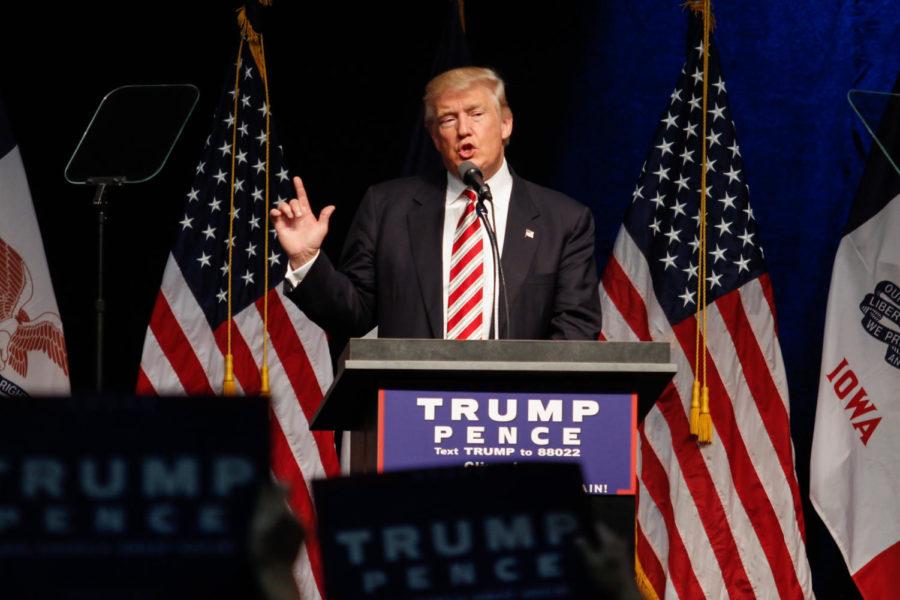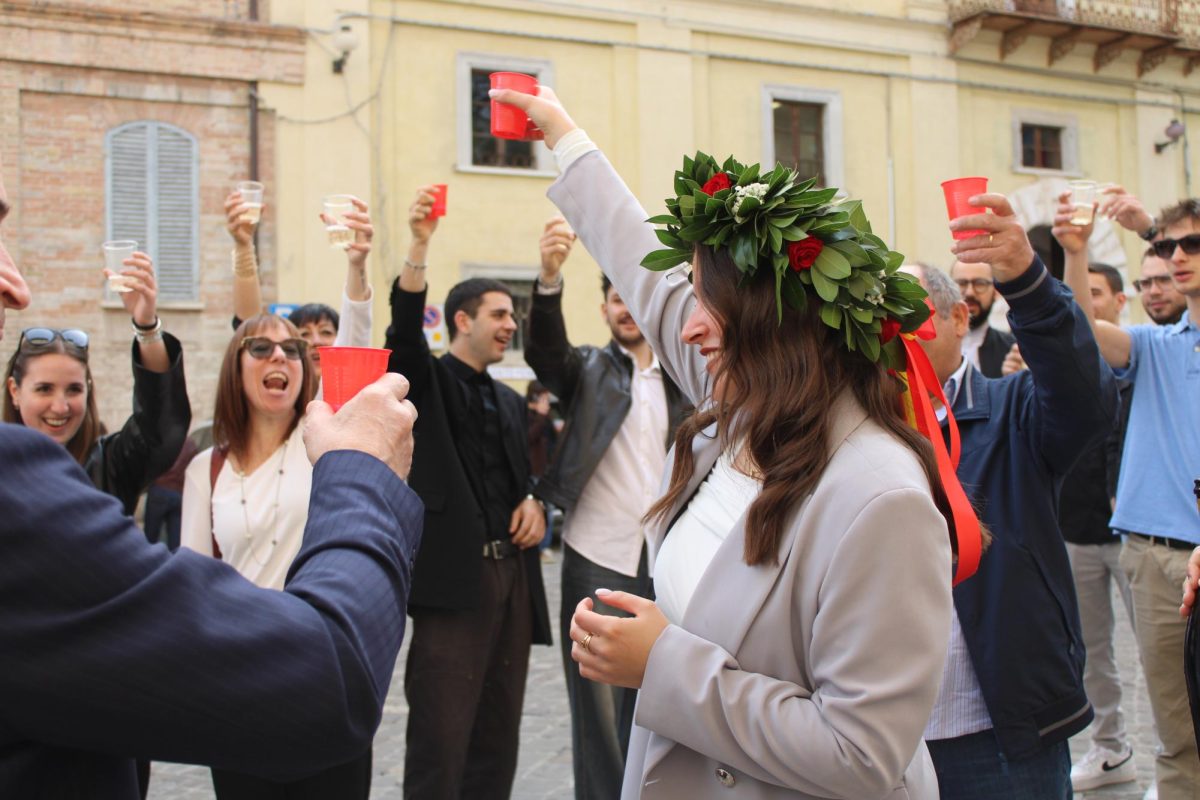Felker: Donald Trump is the new-age politician
Now-President Donald Trump speaks to the crowd about then-Democratic presidential nominee Hillary Clinton’s emails on Sep. 13, 2016 in Clive, Iowa.
January 8, 2017
There is a problem with politicians. And no, I don’t mean to repeat the truism that they’re a pack of crooks. Many writers better than I have already said so much, and backed up so much in such a convincing manner that I would merely point toward their efforts if ever asked to defend such a claim.
The problem I speak of is one of intentions. Why become a politician? And, for that matter, why become a head football coach? Or a bishop? Or a non-profit organization’s CEO? Is it for the distinction, the recognition? The fame, the influence, the sheer instinctual hunger for notoriety we’ve all got churning wood into chips down deep in our soul?
Or have they actually convinced themselves that justice begets power? That their ascendance to director or chief or chair of such and such was both a thing deserved and a thing righteous?
Any combination of these reasons could be the case, I suppose, but I don’t pretend to have all of the answers. I can only stand and watch and observe — with my hands in my pockets — as the limelight shifts from one polarizing public figure to another. Donald Trump is nothing more than the latest in a succession of American Idols, and I am sure the American public has already begun to drool in anticipation of whoever’s next in line.
The truth is that normal folk don’t go in for politics. They don’t have the time. And, to put it candidly, they don’t have the willingness to so drastically suspend disbelief.
They know, themselves, that the issues faced by our country don’t have any simple solutions — no easy outs. They know, themselves, that no man or woman could ever hope to solely bring any kind of resolution to the near infinite interests that throw their weight into every great debate the second our media rings the bell to FIGHT! And, perhaps most regrettably, they know, themselves, that the system will continue to perpetuate itself as long as our culture dives deeper and deeper into the tangled mess of ethical wrong turns it has created at our own unconscious beckoning.
So the average American might talk politics around the dinner table, yes. They might snicker at a particularly clever quip made by some pundit on CNN. But they would never entertain the thought of running for office. They’re too busy working, they’re too busy sleeping and they’re too busy watching television.
What normal folks want is a politician who looks like them, a politician who talks like them and, above all else, a politician who’ll give them a good show. Because that’s all they’re really after. And that’s the best they could ever really expect.
And so what’s the solution? How could we manufacture an unselfish politician? Is such a thing even possible?
Eighty-nine years ago, renowned, maligned, defamed and politically incorrect journalist H. L. Mencken took a stab. He proposed that politicians be elected in the same manner a jury is chosen — randomly, that is. And aside from certain logistical benefits he presented, he argued that this scheme would “fill all the State Legislatures with men of a peculiar and unprecedented cast of mind — men actually convinced that public service is a public burden, and not merely a private snap.”
The idea being, one supposes, to remove egotism from politics by installing a wonderfully high-stakes game of “duck, duck, goose” in lieu of our nation’s current electoral process. Mencken loved to walk that fine line between pragmatic preposterousness and satire, but I am yet to be convinced that this suggestion of his is actually a farce. And, to prove my point, I would ask that the reader imagine his own crowd of acquaintances all gathered together in a single room.
Picture the extent of your Facebook friends list, if you like. Now, suppose I were to select five of these heads at random. Would I pick a bigot? Would I pick a miser? Would I pick a know-it-all, a kind soul, a wishy-washy coward or a quietly intelligent fellow? Now, finally, ask yourself: Would I pick a group of individuals who would collectively make a better or worse commander-in-chief than President-elect Donald Trump?
If you’re not sure what the answer is to that final question, then I hope you’ve seen my point. The notion that Trump or Hillary Clinton or anyone else, for that matter, has any better claim to being prepared or suited for office than the average cadre of bank managers is a silly one. We like to make a game of thinking otherwise, but purely for our own entertainment.
We all know that if somehow, someway, the country ever turns things around, it will be upon the heels of some series of economic mysticisms or technological introductions rather than any purported action by our flavor-of-the-day politician.
So then, who even is the ideal politician? Is it an 85-year-old man or woman — possessing of a lifetime spent doing things? Or is it a 45-year-old who has all the panache and all the know-how but none of the experience? Or maybe what we want most is a diva; a politico-prima donna ready to promise the nation a fortune and deliver whatever falls within their arm’s reach. I think I know which one we’ve chosen.
















